The Dogged Mentality That Shapes Texas Tech, College Basketball's Newest Powerhouse

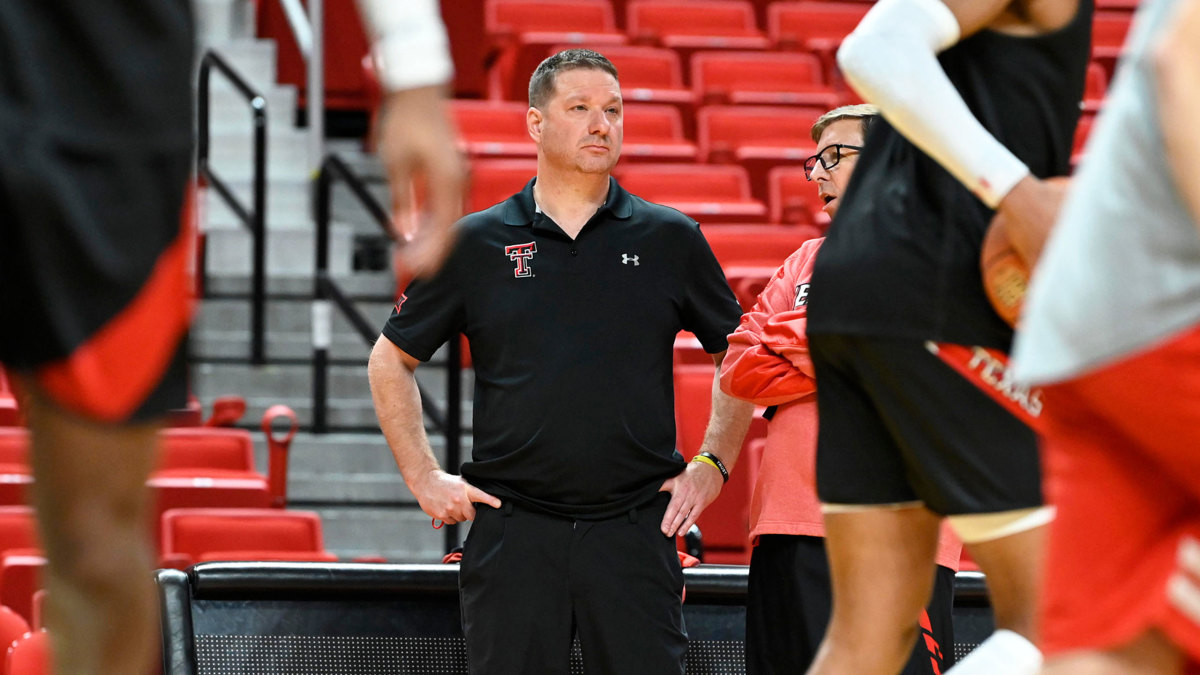
The most popular man in West Texas built his first basketball teams 30 years ago, on public courts that stood in the shadows of the Cowboys’ old Texas Stadium. In those days Chris Beard was a capable shooting guard for Irving High, but he truly excelled at assembling stellar pickup squads. Inside the city’s Northwest Rec Center or beneath the chain nets at Complands Park, Beard would eagerly await his chance at a run, then bring to the floor with him the kind of talent that could keep it going: another shooter, some gridiron-grade toughs to defend and rebound, an older kid whose foul calls would not be disputed. “I’ve always had a good grasp of who I was,” Beard says now. “I was always a guy that knew how to win.” As long as he could do that, he could stay in the game and on the court, the place he most wanted to be.
After just three seasons at Texas Tech, the 46-year-old Beard has constructed college basketball’s newest and most unexpected powerhouse. Last April’s appearance in the national title game, which the Red Raiders lost 85–77 to Virginia in OT, represented a new high-water mark for a program that had reached the Sweet 16 just twice in the 40 years before he arrived.
In each of the past two seasons, Texas Tech was pegged to finish seventh in the 10-team Big 12 before putting together over-achieving seasons that ended with deep March runs. (It reached the program’s first Elite Eight in 2018.) Both of those teams were relentless No. 3 seeds led by underrecruited, quickly developed NBA first-rounders (Zhaire Smith in ’18, Jarrett Culver in ’19) and stifled opponents with a defense that ranked among the country’s best (Nos. 4 and 1 nationally, respectively, in adjusted defensive efficiency).
Lubbock, the so-called Hub City of Texas’s expansive and sparse South Plains region and deep in the heart of football country, has fast become an improbable bastion in the loaded landscape of Big 12 basketball. Texas Tech enters this season with different expectations, which is a testament to that success. For one, another heavy roster churn—just three players return from last season—has this time resulted in an infusion of unusually heralded freshmen (five-star guard Jahmi’us Ramsey, top 100 wing Terrence Shannon Jr.) and hotly pursued grad transfers (do-everything wing Chris Clarke from Virginia Tech and face-up forward TJ Holyfield from Stephen F. Austin). The team is ranked 13th in the AP’s preseason Top 25 and is picked third in the Big 12.
The Red Raiders are finally seen as true contenders, alongside the more experienced powers (such as Michigan State, whose coach Tom Izzo has been to eight Final Fours) and the one-and-done way stations (Duke, Kentucky and newbie Memphis) that more typically populate the top of the rankings. “We’ve been on both sides of it,” says Beard. “Just like we always understood there wasn’t much validity to what everybody thought before [last] season started, now we say we gotta go earn it.”
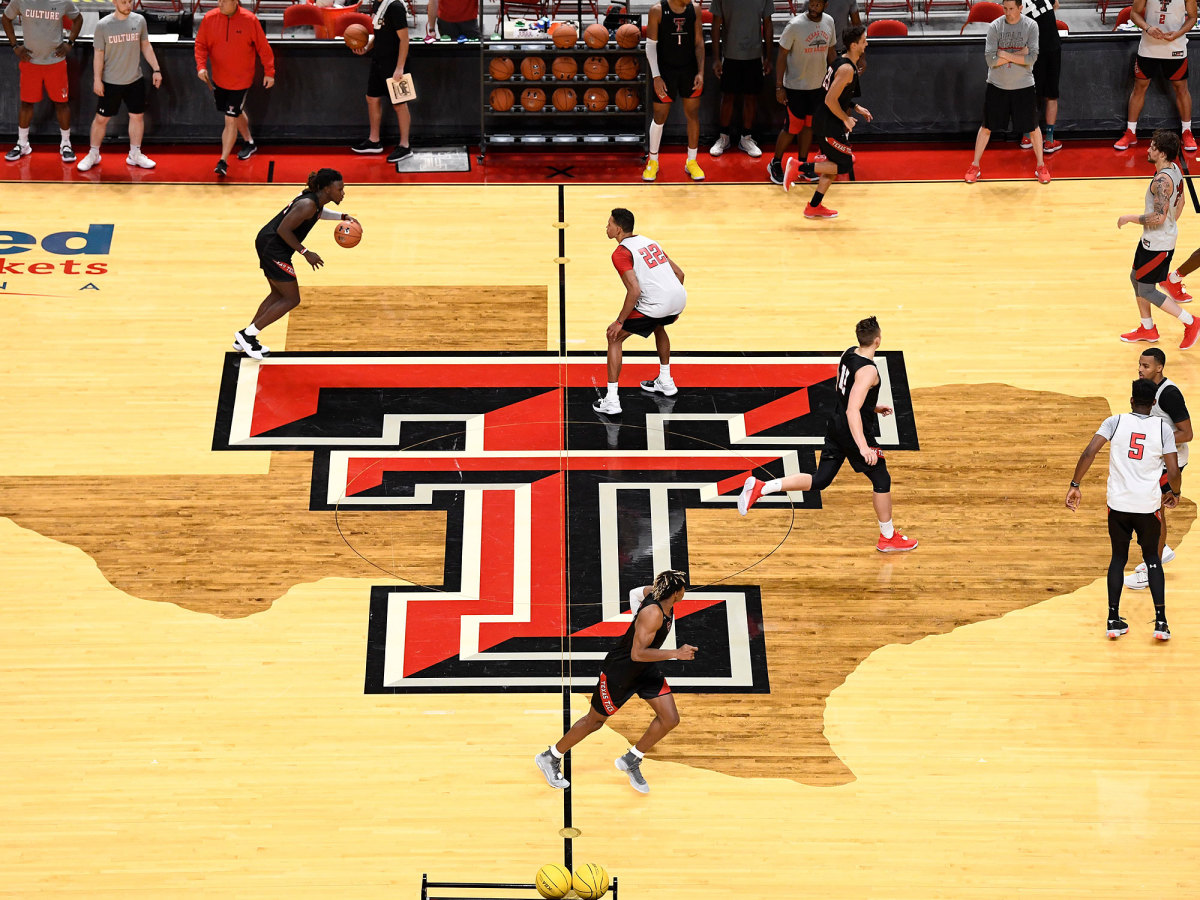
Beard’s path to this new status has been itinerant and hard-earned. After serving four seasons as a student assistant at Texas, he had five gigs over the next six years, from a grad-assistant position at Incarnate Word (where he lived out of his car) to head jobs at Fort Scott (Kans.) Community College (where he and an assistant shared a lone team-logo polo) and then Seminole State (where he drove the team van).
He settled down for 10 seasons at Texas Tech on the staffs of Bob and then Pat Knight, only to take a buyout in 2011 after Pat Knight was fired. He was released into the basketball wilderness again. First came a year coaching in the fledgling American Basketball Association (where his team, the South Carolina Warriors, changed home venues three times in one season and his players were only intermittently paid), followed by brief head jobs back in Texas at D-III McMurry University and D-II Angelo State. In his first season back in D-I, at Little Rock in ’15–16, Beard took a moribund Sun Belt team to a first-round March upset of Purdue, after which he was hired by UNLV, where he stayed for all of 19 days before a controversial return to Lubbock—the only one of his 11 jobs where he stayed for more than two seasons—this time as the head man.
At one particular stop, Angelo State, Beard adopted the metaphor that would become his program’s defining mantra. On that hardscrabble, melting-pot team that set a program record with 28 wins and reached its first D-II Sweet 16 in 2015, was a sharpshooting guard named Marsell Holden who was also pursuing a rap career under the moniker Kilo Watson. The chorus of one of Holden’s tracks, a DMX-indebted refrain of “Where My Dogs At?”, reminded the coach of an old family mutt named Ted, whom the Beards had rescued from a grim shelter that would post on the wall the number of hours before each dog would be euthanized. “I started thinking about this and walked back to my team like, Hey, we’re street dogs,” Beard says. “We’re not pet-store dogs.”
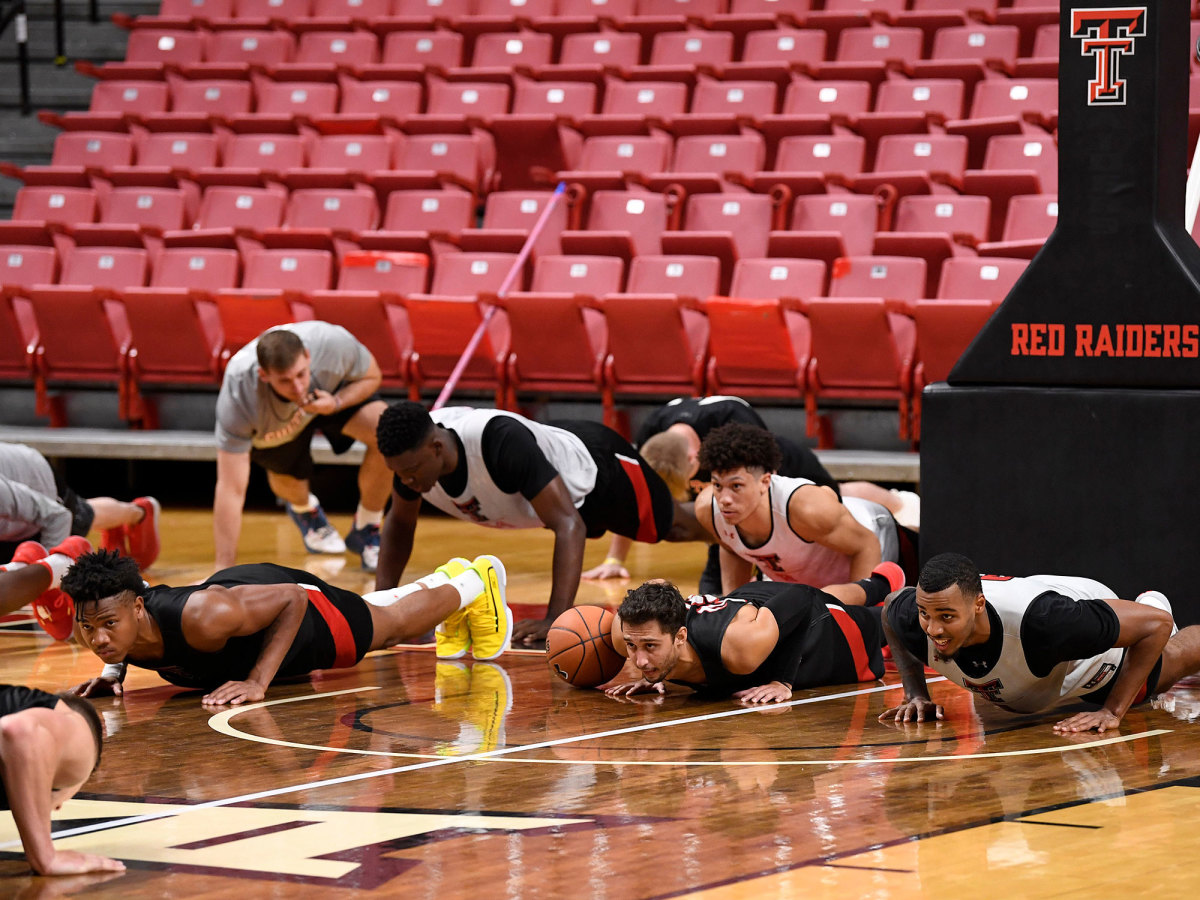
A rallying cry took hold. At Tech, Beard found a YouTube video of a Canadian man setting 45 overjoyed, energetic shelter dogs free on a massive farm and tasked his video staff with keeping it cued up for whenever inspiration was needed. Last March in Anaheim, during the NCAA tournament’s second weekend, the Red Raiders paid tribute to that video. While the players watched film on the court with Beard after practice, the rest of the staff peeled off into the entrance tunnel. A few minutes later, after the team’s umpteenth viewing of the YouTube clip, Beard’s assistants stormed the court, shirtless and barking the team into a frenzy. “That was the street-dog mentality,” says sophomore guard Avery Benson. “[The dogs] were happy to be there, but they’d worked to survive the whole time.” A day later, the Red Raiders ran past another group of metaphorical dogs, the Gonzaga Bulldogs, 75–69, to reach the Final Four.
Dogs often run in packs, and Beard’s is substantial. His Texas Tech staff includes not only the standard three assistant coaches but also a chief of staff, an “advisor,” a director of player development and nine graduate assistants, all supported by 15 student managers. Among the full-timers are a former Big 12 head coach (Sean Sutton, son of coaching legend Eddie and formerly of Oklahoma State), the steward of a juco national champion (Mark Adams) and the coach of the Chinese national team at the 2012 Olympics (Bob Donewald). “A lot of guys make mistakes when they hire everybody you can control,” Beard says. “I’m trying to hire five or six people better than me.”
Adams is a Tech alum who grew up on a cotton farm southwest of Lubbock and earned a reputation as a brilliant defensive strategist over four decades at the junior college and Division II levels. He and Beard had overlapped in recruiting circles, bonding over night-owl movie trips and a shared devotion to the motion offense. Beard first hired Adams to his characteristically large bench at Little Rock and installed a dynamic more common to football teams: staffers divided into offensive and defensive groups that review film and game-plan independently.
At Tech, Beard and Adams helm opposing coaching groups and the head coach doesn’t hesitate to call Adams into the offensive crew’s postpractice film review so he can check out the “dumbass, jayvee bulls---” defense against which Beard’s unit was scoring. And Adams, likewise, is quick to crow when the tape shows his D in lockdown mode. At times, as emotions and frustrations escalate, the barks can grow so fiery some observers fear a coming bite. “When I first got here I thought they hated each other,” says Benson. “I was like, why would Coach Adams work for this guy?”
It’s an environment the program’s alpha fosters with intent. Beard is known to pit staffers against one another in impromptu games of one-on-one (with onlookers told to pick sides) or challenge one of his charges to persuade another man in a bar to swap shirts on the spot. “He pushes everybody, including himself,” Adams says. “He keeps you a little bit on edge, because he wants to get the best out of you.”
Or as Beard puts it: “Coach Knight used to say comfortable people get their ass beat. And I agree.”
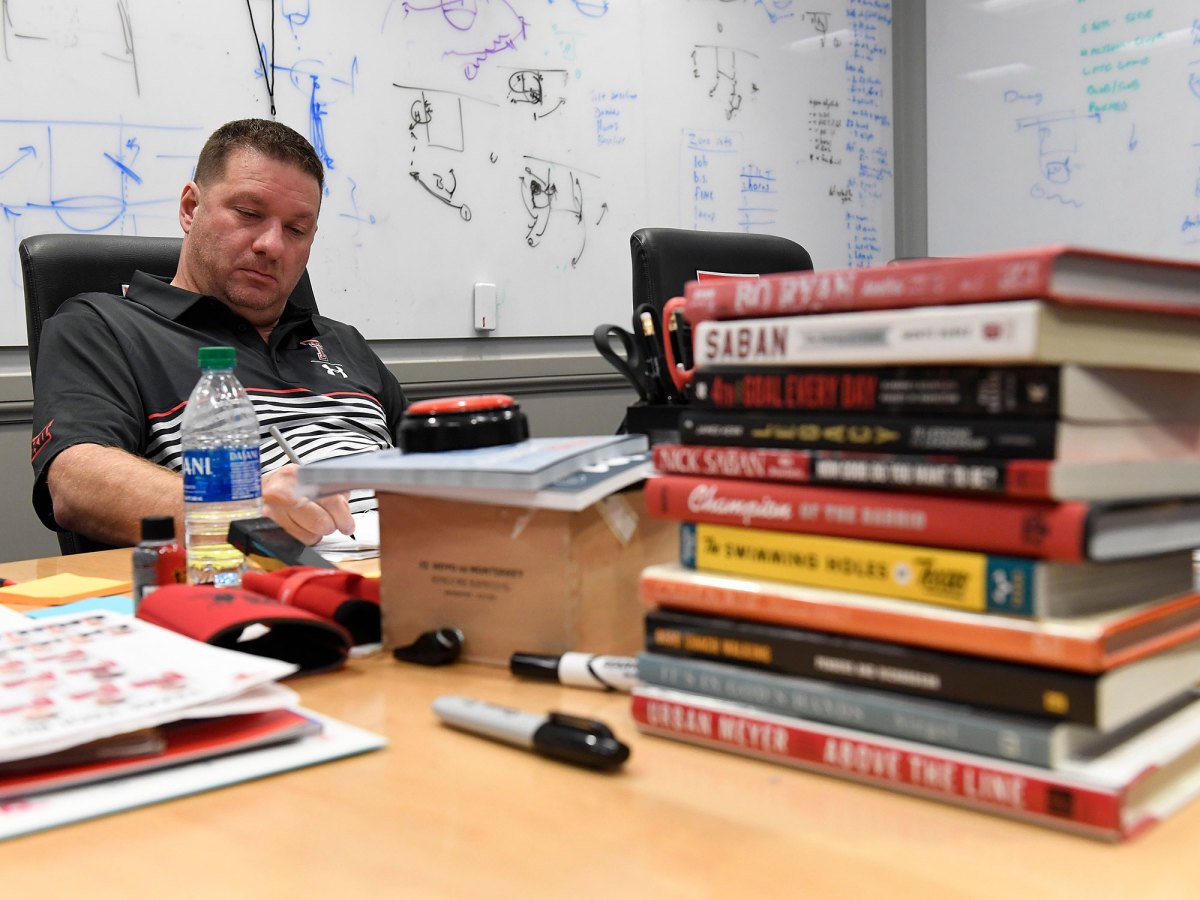
Adams’s defenses stand as proof. Since midway through the 2017–18 season the Red Raiders have been deploying what Adams calls his “side defense,” which draws on influences ranging from Dick Bennett’s 1980s D-III powers at Wisconsin–Stevens Point to the modern Golden State Warriors. Its central tenet is that at no time can the defense allow penetration in the middle of the floor. Opponents are forced to one sideline or the other, which prohibits any offensive flow. The results have been staggering: Last season the Red Raiders’ adjusted defensive efficiency (points allowed per 100 possessions against the average D-I offense) of 84.1 was the lowest by any team in the 18 seasons the stat has been tracked by kenpom.com.
Adams keeps three bowls, three mugs and four Tupperware containers of assorted candy in his office at all times, which incentivizes players to stop by for defensive tutoring. In this duality—between the coaches’ frequent levity and the intensity they demand—the Red Raiders thrive. On the eve of last year’s Sweet 16 drubbing of Michigan in Anaheim, the team provided a shuttle for players to visit Disneyland. (Says Beard: “Hell yeah, we went to Disney.”) Outside the film room, where Beard and his staff often remain past 1 a.m. painstakingly documenting every play from every practice, stands a cardboard cutout of a pantsless Zach Galifianakis that Beard bought off a road-game heckler for $87.
Last season, as the Red Raiders entered a grueling Big 12 stretch, strength coach John Reilly added to the ornamentation by printing photos of Rottweilers and pit bulls and taping them up around the facility and in each player’s locker.
The images survived into the offseason, at least for the trio of last year’s players who remained. For them, their street-dog status is earned. Junior Davide Moretti, a deadeye point guard (45.9% from three last season) from Bologna, Italy, was slighted by European pro clubs who only offered him a spot as a reserve. He also failed to make the final cut for the Italian national team last summer. Backcourt mate Kyler Edwards, an Arlington native, still remembers how people back home derided his choice to go to Texas Tech; Benson is a walk-on from the Arkansas Ozarks with a chip on his shoulder.
The new arrivals, however more heralded, have their own motivations. Ramsey, the five-star recruit, idolizes the ferally forceful Russell Westbrook. Shannon finished high school in Chicago with just one D-I offer, from Austin Peay, before raising his profile at prep school.
Holyfield, the gregarious grad transfer from Stephen F. Austin, says playfully that his own accreditation as a true street dog will need his teammates’ approval. He’s asked which breed of dog he would choose to decorate his locker. After a moment of pondering, his first instinct is one of the smaller breeds he likes most. His new training kicks in quickly. “I can’t put up a freakin’ corgi,” he says. “I’d get, like, a mean boxer, or a freakin’ mastiff. Yeah.” Then he flexes both arms and bares his teeth.
Beard has ties to another burgeoning local sports power. After two years of dating Frenship High volley-ball coach Randi Trew (a Lubbock native whose Tigers, at week’s end, were 6–1 in District 2-6A), Beard decided to propose. “I started thinking, Why don’t I just do this and knock it out?” he recalls. He and his executive associate, Liz Cope, cooked up the itinerary all in one day: drinks at the spot where Beard and Trew first met (World of Beer, on Lubbock’s west side), dinner at the site of their first date (a biker bar called Moose Knuckles, 40 minutes outside of town). “We might do the same thing with the wedding,” Beard jokes.
His connection to the area—Beard’s three daughters from his first marriage live two hours southeast, in Abilene—may quell some concerns among Tech faithful that the most successful coach in program history could be primed to jump to yet another job. Beard’s name was connected to the (presumably deep-pocketed) openings at UCLA and Arkansas this spring, which helped land him a new deal worth nearly $4.6 million in annual salary—third-most nationally, behind John Calipari and Mike Krzyzewski. (Adams also interviewed with the Chicago Bulls.) To hear Beard tell it, his history of job hopping is misleading. He says he has not pursued a job since his first one at Incarnate Word, that he hasn’t even made a résumé since cobbling one together on WordPerfect in the 1990s. He likes the feel of Texas. He owns a house for the first time since his last stint in Lubbock. “Every job I have I just always think, man, this is the best job in the world and I’m gonna try to win a championship,” he says.
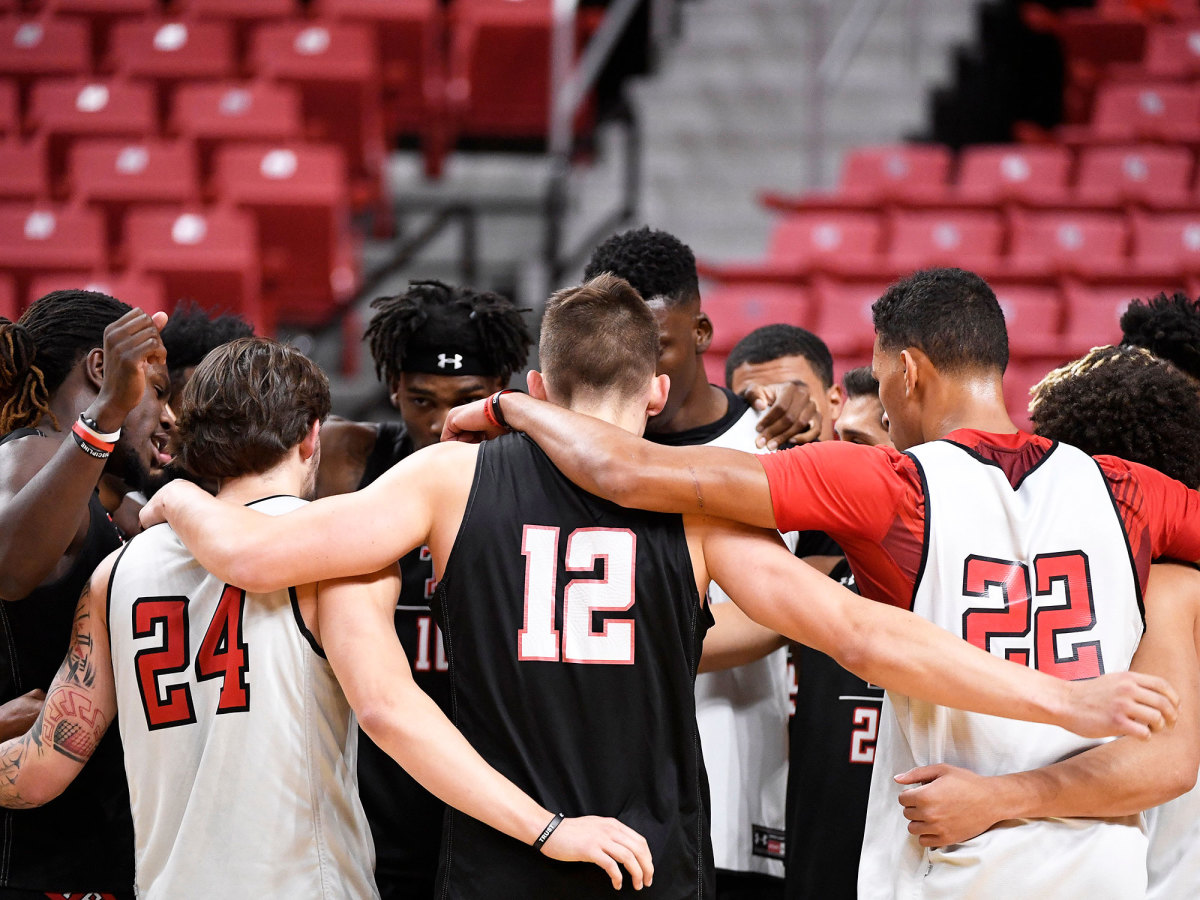
One of Texas Tech’s slogans, mounted throughout its facilities, is Fearless Champions. Beard respectfully disagrees. Fear, he says, is a great motivator—fear of being unprepared, of letting down others. So too is the torment of reaching a goal’s threshold and being denied. Beard has been a longtime devotee of the NCAA tournament’s annual “One Shining Moment” montages—he once copied the lyrics onto a napkin so he could memorize them later—but after April’s loss to Virginia he skipped his ritual viewing for the first time since he was a teenager. He has yet to see tape from the national title game either. He says he might watch it someday, once he wins his first championship.
“I’m more motivated now than I was a year ago—not even close,” Beard says over salsa verde chicken enchiladas at Durango’s, a strip-mall Tex-Mex favorite. “I didn’t show up at Texas Tech thinking, Hey, we’ll make the tournament. I showed up thinking, We’re gonna win it all. People looked at me like I was crazy. Now they don’t look at me like that.”
On the drive back to the office, where yet another all-night practice breakdown awaits, Beard returns to a pet subject. He pulls out his iPhone and FaceTimes his youngest daughter, Margo, 13, who answers from her mother’s house wearing a tie-dyed Texas Tech long-sleeve T. For the education of a guest, he leads Margo through a review of his three daughters’ dogs.
First he asks about Charlie, the Cavalier King Charles spaniel that belongs to his eldest daughter, Avery, a sophomore at Columbia. “She’s a purebred,” Margo says dutifully. And her own goldendoodle, Lucy? “Lucy’s a purebred too,” Margo says.
Then there’s the excitable midsize mutt Beard’s middle daughter, Ella, recently discovered beneath a bush by her house. Margo lets Ella’s dog out of her crate to join their chat and gets rewarded with a flurry of face licks. Ella named the dog Rue, French for street.
“When was the last time Rue got in trouble?” Beard asks, his face lit by the phone’s glow as Lubbock’s Spanish-style architecture drifts past in the dark.
“Yesterday,” Margo says. “She ate an $800 chair.”
“Oh, man,” Beard says. “That’s not good.” Then he turns and smiles conspiratorially, happy to see a street dog who found its home.
